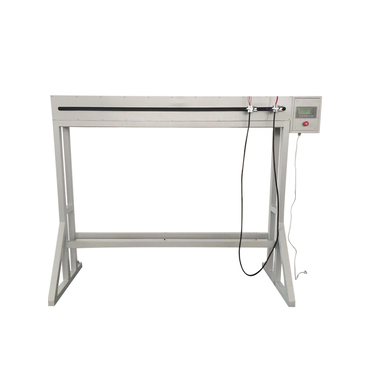machine that tests tensile strength
The Importance of Tensile Strength Testing in Material Science
Tensile strength testing is a crucial process in material science and engineering, essential for evaluating the mechanical properties of materials. From metals and polymers to composite materials, understanding tensile strength enables engineers and scientists to predict how materials will behave under stress. The machine that tests tensile strength plays a pivotal role in this analysis, providing valuable insights into material performance and safety across various applications.
Understanding Tensile Strength
Tensile strength is defined as the maximum amount of tensile (pulling or stretching) stress that a material can withstand before failure. There are various forms of tensile strength, including yield strength and ultimate tensile strength. Yield strength refers to the maximum stress that can be applied before a material deforms permanently, while ultimate tensile strength is the peak stress a material can endure before it breaks. These parameters are vital for determining the suitability of materials for specific applications, such as construction, automotive manufacturing, and aerospace engineering.
The Tensile Testing Machine
A tensile testing machine is specifically designed to apply tensile stress to a material specimen. The process begins with the preparation of a sample, which is usually shaped into a standardized form, such as a dog-bone shape, to ensure consistent results. The specimen is then mounted in the testing machine, which grips the ends of the sample and applies a controlled tensile force. The machine measures the applied load and the corresponding elongation of the specimen, allowing for the calculation of tensile strength.
Modern tensile testing machines are equipped with advanced technology, including digital displays, computer integration, and data analysis software. These features enable precise measurement and real-time monitoring of test parameters, enhancing the accuracy of the results. Some machines are even capable of conducting strain-rate testing, which assesses how materials behave under varying rates of loading, further deepening our understanding of material performance.
The Testing Process
machine that tests tensile strength

The tensile testing process typically follows a standard procedure, such as those established by ASTM (American Society for Testing and Materials) or ISO (International Organization for Standardization). After preparing the specimen, it is measured to determine its initial dimensions and then entered into the tensile testing machine. The machine gradually applies tensile force until the specimen fails. Throughout the test, data regarding load and elongation are recorded continuously.
Once the test is concluded, the load-elongation data is plotted on a stress-strain curve. This curve is instrumental in identifying key material properties, including elasticity, yield point, ultimate tensile strength, and failure point. The information derived from this curve not only informs engineers about the material's performance but also helps determine how it can be further improved or modified for specific applications.
Applications of Tensile Strength Testing
Tensile strength testing has widespread applications across various industries. In construction, for instance, understanding the tensile properties of concrete and steel is essential for ensuring that buildings and structures can withstand the stresses of use and environmental conditions. In the automotive industry, tensile testing of materials ensures the safety and durability of vehicles, directly impacting passenger safety.
Moreover, the aerospace industry relies heavily on tensile strength data to select materials that can endure extreme conditions during flight. In manufacturing sectors, including textiles and polymers, tensile testing is vital for quality control and product development, ensuring that materials meet the required specifications.
Conclusion
In summary, the machine that tests tensile strength is an indispensable tool in material science, playing a vital role in ensuring that materials are suited for their intended applications. By providing detailed insights into the mechanical properties of materials, tensile strength testing contributes to the safety, efficiency, and innovation of products across a wide range of industries. As technology advances, the capabilities of tensile testing machines will continue to improve, offering even more detailed analyses that will drive the development of new materials and applications in the future. Understanding tensile strength is not just a technical requirement; it is a fundamental aspect of engineering that ensures the reliability and longevity of the products we rely on every day.
-
Why the Conductor Resistance Constant Temperature Measurement Machine Redefines Precision
NewsJun.20,2025
-
Reliable Testing Starts Here: Why the High Insulation Resistance Measuring Instrument Is a Must-Have
NewsJun.20,2025
-
Flexible Cable Flexing Test Equipment: The Precision Standard for Cable Durability and Performance Testing
NewsJun.20,2025
-
Digital Measurement Projector: Precision Visualization for Modern Manufacturing
NewsJun.20,2025
-
Computer Control Electronic Tensile Tester: Precision and Power for the Modern Metal Industry
NewsJun.20,2025
-
Cable Spark Tester: Your Ultimate Insulation Assurance for Wire and Cable Testing
NewsJun.20,2025
 Copyright © 2025 Hebei Fangyuan Instrument & Equipment Co.,Ltd. All Rights Reserved. Sitemap | Privacy Policy
Copyright © 2025 Hebei Fangyuan Instrument & Equipment Co.,Ltd. All Rights Reserved. Sitemap | Privacy Policy
